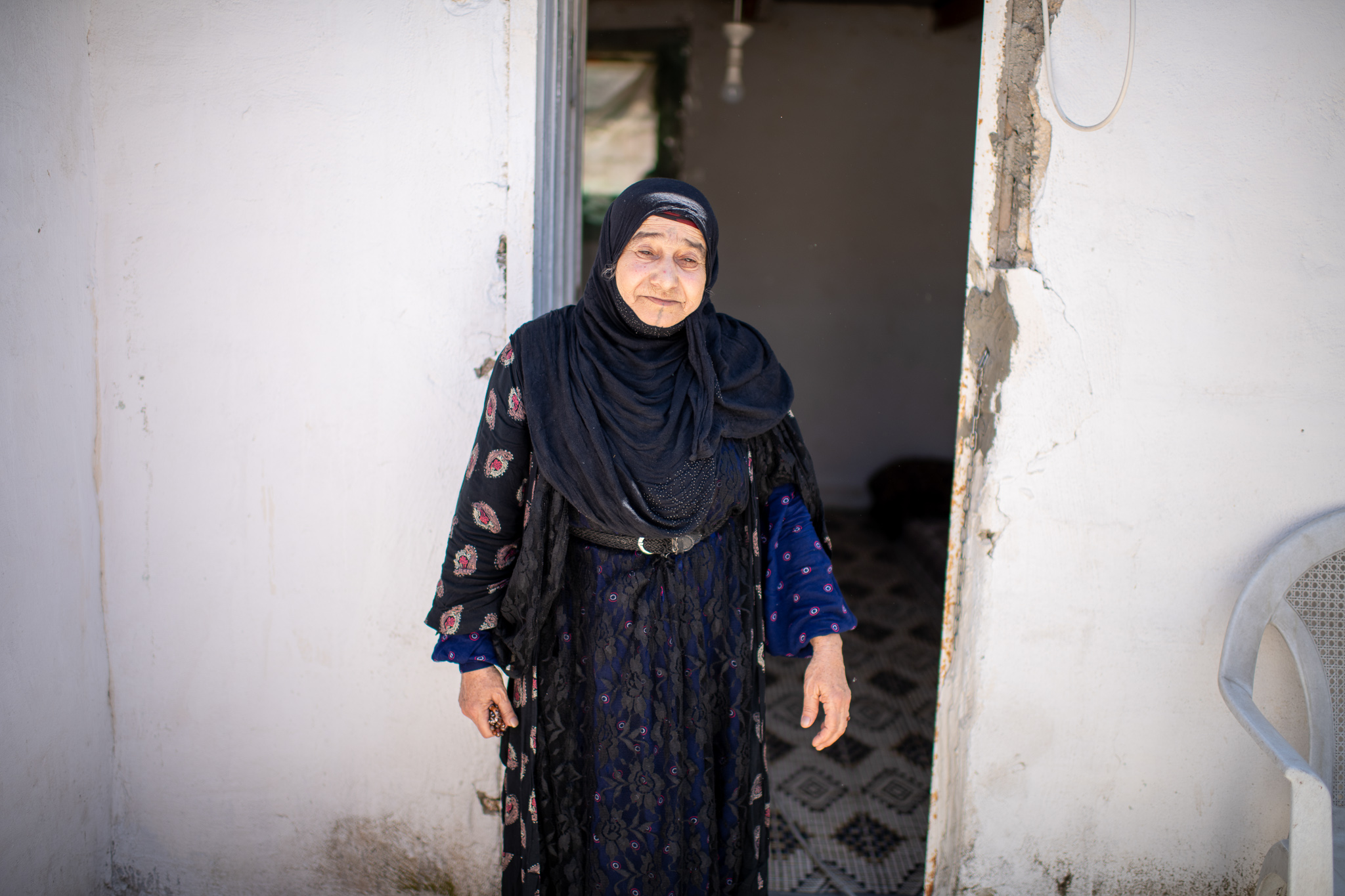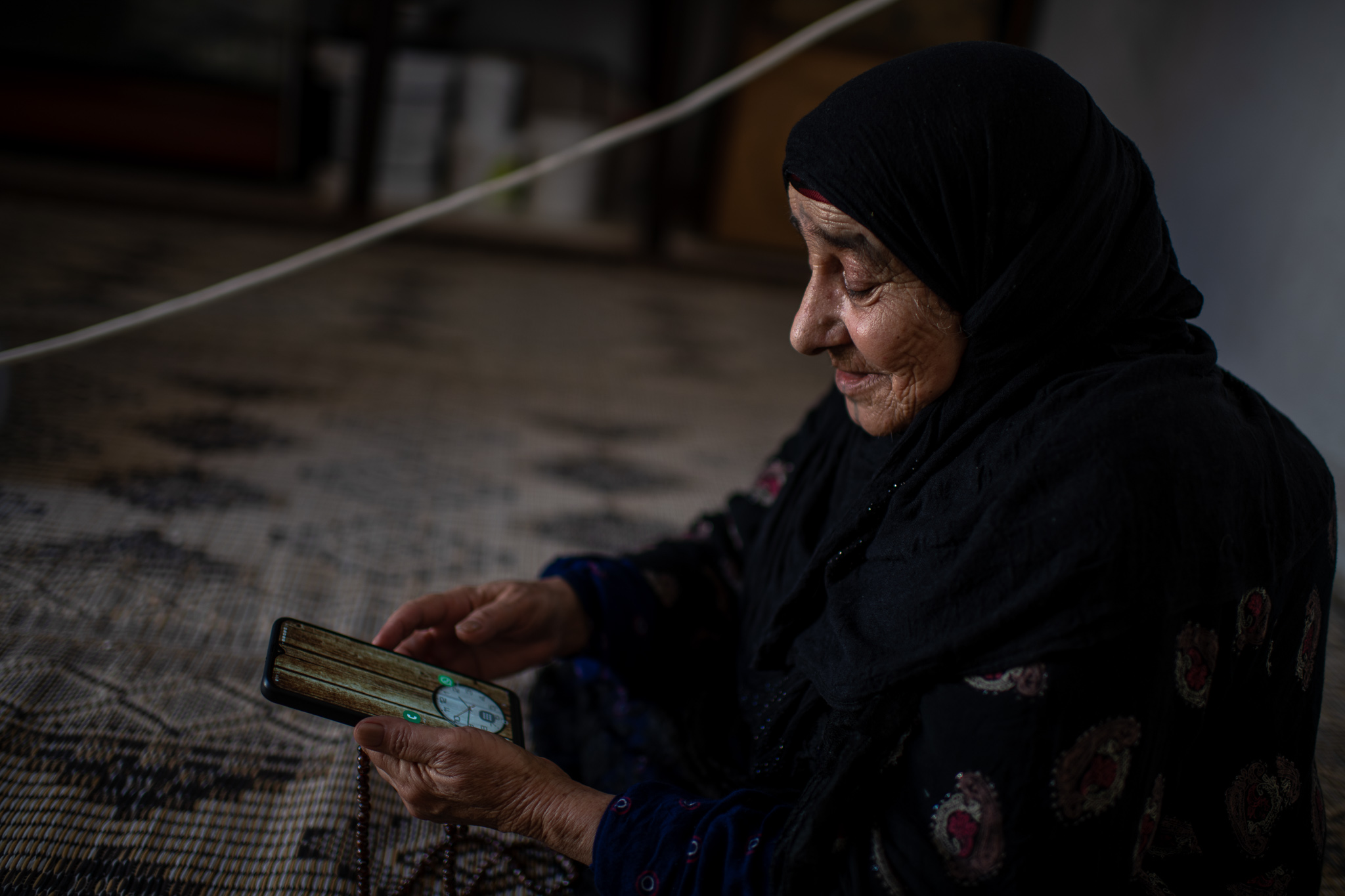With no electricity, no fridge and no source of cold water to quench her thirst in the 40-degree heat, Yaze is among the most vulnerable refugees in Jordan.
Yaze stares at forlornly at the empty space around her. Barely even 20m wide, the single room rooftop apartment where she lives, used to be used as a storeroom by her landlord until she offered just 40 dinar a month to take it off his hands. The one notable object in the room, a worn-out mattress lies in the corner, the only thing she brought from Syria.
With no electricity, no fridge and no source of cold water to quench her thirst in the 40-degree heat, Yaze is among the most vulnerable refugees in Jordan.
Living alone, tears come to her eyes as she recalls the circumstances in which she left Syria. She hasn’t been in contact with her son, her only living relative, since. “I think he went to Turkey, but I don’t know.”
From rural Raqqa, Yaze spent her life working on farms. Growing cotton, tomatoes and aubergines she says she feels at home in the countryside and that fleeing Syria to now living in Amman, a sprawling city of over 4 million people, has just felt like an alternate reality.

Her mother died when she was only 10 years old and so along with her two older brothers they had to look after themselves. Life hasn’t been easy but in 2011, just as the Syria conflict started, she finally realized one of her dreams and took the Hajj to Mecca, her first time leaving the country.
When she returned, however, everything in Raqqa quickly changed with the arrival of ISIS. “It was like a dream. In one night, everything changed. The world which I knew changed. Women weren’t allowed out their houses by themselves. We had to wear the Niqab and there were so many rules. I had been living alone since my husband died over 20 years ago, but suddenly I couldn’t do anything by myself anymore. We tried to stay to resist. But soon the planes and bombs came, we had to find a way to escape.”
Piling onto a truck with a collection of friends and neighbors, Yaze headed to the Jordanian border. It was mid-2014, and after staying a couple of months at Rukban they were admitted to Azraq Refugee Camp. Since then Yaze explains that she hasn’t seen any of her neighbors again, or indeed, met anyone from Raqqa. She was admitted to hospital in Amman for heart surgery, three months after being in Azraq Camp and subsequently remained in the city due to the ease of access to the hospitals.
Despite the continued hardship, Yaze has many stories to tell. She reals off the nationalities of the friends she has made since living in Amman, Jordanian, Palestinian, Iraqi, Filipino among others.
“My laugh makes them laugh,” she jokes.
She used to regularly visit her neighbors and friends living nearby. Her picture on WhatsApp, which she has half learned how to use over the last year despite not knowing how to read, is that of her neighbor Basma’s children, who often come over to check on her, bring plates of food, or collect medicine from the pharmacy on her behalf.

Over the last couple of months due to the coronavirus pandemic, though, life has become increasingly difficult. “I wake up, make breakfast, take my medicine, pray and then sit here for the day,” she explains. With no TV or books, Yaze says that she has been incredibly lonely. “I sleep in the afternoon because there is nothing else to do, but then that means I can’t sleep at night,” she complains.
Although curfews have now started to lift in Jordan, Yaze explains that she very rarely goes out even once a week. She is worried about what would happen if she got the virus and the five flights of stairs are not easy to navigate for a sixty-year-old woman who is trying to get on a waiting list for an operation on her knees.
But once a month she goes to collect her monthly cash assistance, provided by UNHCR. 80 dinars may not seem like much but is all she has. Half goes on rent and the other half she spends on medicine and food. “Its a simple life, but what can I do,” she sighs.
Asked what she prays for, Yaze says:
“Two olive trees. Two chickens. And some space to plant vegetables would be enough. And to see my son again.”
Share on Facebook Share on Twitter